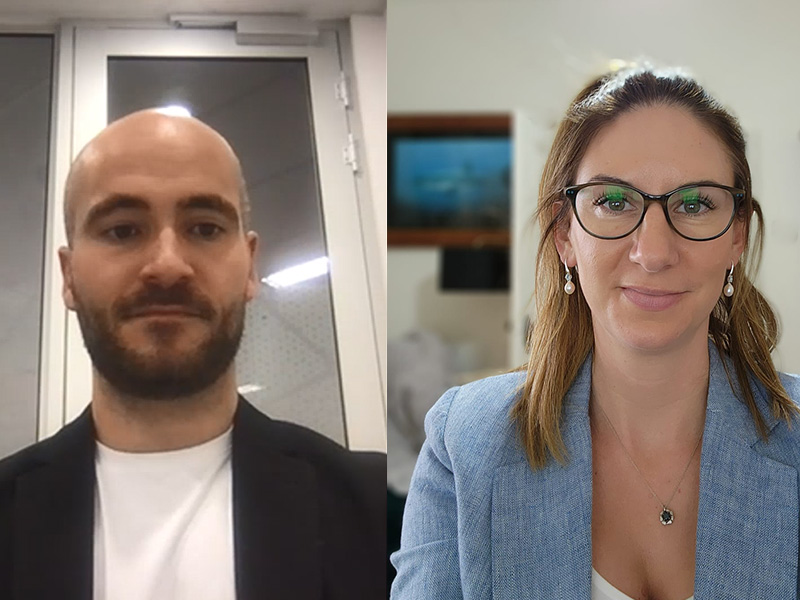
Anastasia Bougesis (Project Sponsor) and Joep van Agtaren (Research Lead and Co Lead of Be Well Co) caught up for a discussion about the Wellbeing Project. Listen to the recording or read the transcript below to be taken behind the scenes of the Wellbeing Project and explore how the research team will go about assessing DRA’s Volunteering Program.
Anastasia – Hi I’m Anastasia and I’m the Project Lead for the Movember, Wellbeing Project.
Joep – My name is Joep and I’m the co-lead for SAHMRI’s (South Australian Health and Medical Research Institute) Be Well Co and we’re the evaluation partner on the project.
Anastasia – Thanks Joep. So, we’ve officially launched our long-term wellbeing surveys.
Joep – Yeah, it’s quite exciting. There’s actually been a lot happening in the background. We’ve been securing funding and we’ve been developing the study. So it’s quite an exciting time for the project team.
Anastasia – Excellent. There certainly has been a lot of work and we’re really thankful to Movember for coming on board as our funding partner and also to SAHMRI and Flinders Uni as our research partners.
People have started receiving their links to the wellbeing surveys and when they click on their link from DRA, they’re taken through to the Be Well Co website to complete the survey. Can you tell us a little bit about the Be Well Co and why you co-founded it?
Joep – Yeah, sure. So Be Well Co is a spinoff from SAHMRI and we set it up so we can make scientific approaches to wellbeing available to the wider public. So taking it from the research context to people who need it. That ranges from training, but it also includes measurement, which is one of the reasons why we’re working with Movember ourselves.
So, your members will be sent to the Be Well Tracker. That’s a platform that we’ve built to measure wellbeing. We set that up so we could measure wellbeing, one in the scientific way, but also so we could completely control the data, so we didn’t have to rely on an external provider. So that makes it easier for us to actually adhere to our strict protocols for ethics and data security.
We’ll touch on data security a little bit later on in the interview.
Anastasia – Fantastic. Can you tell us what the study of DRA’s Volunteering Program has been designed to assess?
Joep – Yeah. We really want to test and build on the existing evidence for the impact of DRA’s Volunteering Program on mental health outcomes for its volunteers. So, for military and first responder veterans.
And while we’re doing that, we also really want to assess whether the program actually can benefit from some suggestions for improvement or whether everything is completely OK. So we really are going to try and evaluate this independently and we’ll put our recommendations to DRA.
Anastasia – Yeah, sounds great. You also want to capture the non-veterans who volunteer with DRA as well. Why is that?
Joep – Yeah. DRA is quite a unique organisation in that veterans and civilians are working together towards the same goal. So it’s really about serving the community together in their time of need. So the role that civilians play really comes as an add on to the military and first responder focus of the grant, so we really want to test both the impact on the military and first responders and civilians, because a lot of it is really unknown as to what the impact of the program is and we really hope to get some insights through this study.
Anastasia – Fantastic. Once an individual fills out a survey, what happens to their data in this study?
Joep – So as I said they complete the survey through the tracker and their individual response will be sent to our database, so ultimately, we can assess the impact of the program, but all of those responses, pretty much immediately get deidentified, so even the researchers that work on the data actually don’t know who the data belong to. So everything is made as anonymous as it can be. What we’ll do in the background is that we will collate the data and write a deidentified report to DRA and Movember. That helps us analyse the impact of the program.
So, we won’t be sharing any individual data with DRA on any of the individual responses.
Anastasia – Fantastic. Thank you. How long does it take to complete the survey?
Joep – It takes about 10 to 15 minutes. So nothing too major.
Anastasia – Yeah, great. Can you tell me how the study has been designed?
Joep – Yeah, we’re trying to combine what they call quantitative and qualitative data. So we really try and merge a couple of different techniques to try and get a rich picture of what the impact of the program is. Specifically, what we’re going to be doing is using three streams, so:
One is we’re going to do these long term surveys, the first of which we just launched, which will form the baseline for the study and we’re going to be doing that every three months.
Then we’re going to do wellbeing snapshot surveys. So we will do these short surveys around the time of deployment itself.
And then finally we will be using interviews and focus groups with volunteers when they’ve come back from deployment and generally throughout the program to see what the impacts are.
Everything we do is scientifically validated and we’ve specifically chosen our measures to assess domains that are quite relevant for the impact of volunteering on wellbeing.
Anastasia – Right. So, when you say validated and validated mental health and wellbeing, questionnaires, what do you mean by that?
Joep – Yeah, it’s a bit of a term we use as jargon, so apologies for that. Pretty much what it means is that a lot of researchers have been testing the same questions and the same combination of questions across different groups of the population to make sure that on average they would resonate with most of the people and they would actually give us reliable and valid answers over time. So what that might mean is that for some of you, some of the questions, one or two of the questions, might be feeling a little bit off and that’s unfortunately a thing that happens with these validated questions. But by doing this method where we use standardized approaches, we at least make sure we can actually compare the results to other studies around the world.
Anastasia – Right. So if you’re answering the questionnaire and one of the questions feels a bit off, don’t worry about it too much. Just answer the best you can.
Joep – Yeah, pretty much gut call. The first answer that comes to mind. That’s pretty much what you we want you to go for.
Anastasia – We’ve set some pretty ambitious targets for engagement of the DRA members into the study. Can you tell us why this is important for the from the research side?
Joep – Yeah, this one is quite simple. It’s pretty much the more data we have, the better quality it is and ultimately there is a bit of a ceiling. So we don’t have to go on forever. But yeah, the target that we’ve set, makes sure that we can actually get valid results on pretty much any of the analysis that we want to run.
Anastasia – Can you let us know what we’re sitting at the moment against our targets?
Joep – Yeah, we’ve set a target of about 684 and so far we are at 271. So we’re at about 40% of our target, which is quite an amazing response in less than a week.
Anastasia – Sure is. Can you provide us a breakdown by the DRT team? Who’s leading the Wellbeing Project Team Challenge?
Joep – Yep. So as of Wednesday morning 9am, Adelaide time, the Victorian DRT is leading Most Tenacious Team Challenge, and that’s really followed by the NT and ACT teams.
But yeah, I actually think the one to watch is, WA. So they’ve had quite a massive boost in participation from Monday to Wednesday, so Victoria, NT and ACT watch out, WA is coming.
ANASTASIA – Nothing wrong with a bit of friendly competition.
JOEP – No I know.
ANASTASIA – Thanks Joep. So it’s over to our members now. The success of the wellbeing project rests on high participation from our members. So we do ask you to please take the time to get involved and complete the survey. It’s just 10 to 15 minutes of your time and it’ll help us immensely to validate our program so that we can grow our Tribe and help more people in their time of need.
JOEP – Thanks.
